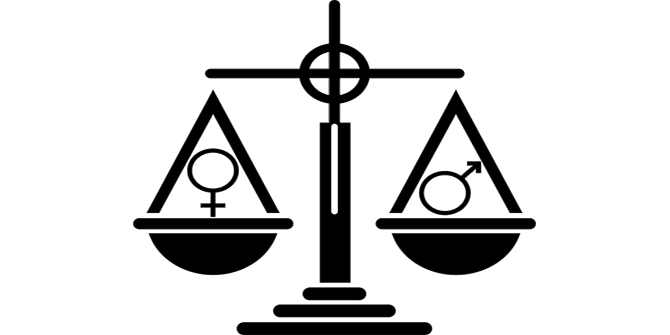Emily Harmer and Rosalynd Southern assess online abuse directed at MPs on Twitter. The findings suggest that for the receipt of certain types of incivility, there is little difference between female and male MPs. However, female MPs were more likely than male MPs to receive generally uncivil tweets, tweets with stereotypes about their identity, and tweets questioning their position as politicians. They also identify more subtle microaggressions that position women and minority MPs as unqualified and unwelcome in politics.
In an age where the use of social media has become part and parcel of their work, politicians regularly risk being subjected to harassing or abusive communication. While such interactions have occasionally led to criminal prosecutions, the scale of the problem warrants further investigation. There is some evidence to suggest that the risks appear even greater if those representatives are women or from a minoritised group; for example, in advance of the 2019 UK General Election, several women MPs indicated that feeling harassed and demeaned had contributed to their decision to stand down. It would seem then, that pre-existing inequalities are being exacerbated by social media which has profound implications for democracy. If certain politicians receive a disproportionate amount of online abuse, it seems fair to suggest that this could further contribute to their exclusion and under-representation in politics.
Our work sheds light on the extent to which social media communications aimed at politicians are abusive or uncivil by assessing whether there are differences between how male and female MPs are spoken to on Twitter. In our first study, we collected 117,802 tweets aimed at MPs over a two-week period. Drawing on an existing typology of incivility, we coded each tweet for the presence (or absence) of stereotyping, name calling, calling the recipient a liar, calling them unintelligent, and profanity. We added additional variables which could be considered threatening to the democratic rights of MPs: direct measures of silencing, questioning their position as an MP (imploring them to resign or otherwise leave the political sphere) and outright threats of violence. Lastly, we identified tweets that displayed any form of discriminatory language aimed at some aspect of their identity, whether these were subtle or otherwise. All of these were treated as separate independent categories. All were measured as a binary and only sentiment aimed directly at the MP in question was coded. This led to ten variables overall, the first nine of which were used for quantitative analysis, and the last of which was used to identify tweets (N = 11, 543) for more in-depth qualitative analysis.
For the first nine variables we ran logistic regression models, controlling for party, ethnicity, sexuality, age and follower count. Follower count was positively and significantly associated with a higher level of each type of incivility or abuse, except questioning intelligence. This suggests that having a higher profile leaves MPs more likely to experience online abuse. Our findings also showed that online incivility is also gendered. Even when controlling for other factors, female MPs were borderline significantly (p=0.066) more likely to receive generally uncivil tweets and tweets questioning their position. They were also significantly more likely to receive tweets that contained stereotypes.
While straightforward examples of abuse and discrimination are easy to identify, categorise, and quantify, we also observed a number of tweets which include much more subtle forms of ‘othering’ or microaggressions that position women and minority MPs as unqualified and unwelcome in politics, without being overtly abusive or hostile. To better capture these subtle forms of exclusion, our second study used thematic analysis to identify several forms of othering. We refer to these as digital microaggressions. These everyday slights and indignities, most often experienced by those from minoritised backgrounds, are pernicious because while they may seem innocuous to some, or are not intended to insult, they position people from marginalised communities as out of place in public life and serve as daily reminders that political institutions were not designed for them.
We analysed the 11,543 tweets which were identified as uncivil in the previous study. We identified four main themes. The first theme, ‘overt online abuse’, is perhaps self-explanatory. The other three themes we identified were much more subtle. Our second theme, ‘everyday sexism and othering’ saw women MPs being accused of being too distracted by their domestic lives, too sensitive or included tweets which patronised and minimised their contribution. The final two themes were particularly problematic from a gendered and racialised perspective. Some tweets sought to dismiss discrimination or blamed women of colour, in particular, for inviting it on themselves. Another set of tweets actively claimed ‘reverse discrimination’ by accusing black MPs specifically of being unwilling or unable to represent their white constituents. These findings show that digital microaggressions serve as constant reminders of the marginalised status of female and minoritised representatives, with women of colour experiencing the most problematic microaggressions. Twitter, as an online political space therefore operates as a hostile environment for the under-represented.
Overall, then, the evidence from our research shows that women and MPs from minoritised groups are particularly at risk of experiencing certain forms of online abuse. Crucially though, it also highlights that there are a whole range of ways through which Twitter users ‘other’ and undermine politicians without being overtly abusive but still contribute to making politics a more hostile environment for women and minoritised MPs. To gauge the impact on whether such experiences force them out of politics, more research on how politicians deal with being discriminated against online is needed.
_______________________
Note: the above draws on the authors’ published work in Social Science Computer Review and in Information, Communication & Society.
Emily Harmer is Lecturer in Media at the University of Liverpool.
Rosalynd Southern is Lecturer in Political Communication at the University of Liverpool.
Photo by Alexander Shatov on Unsplash.





